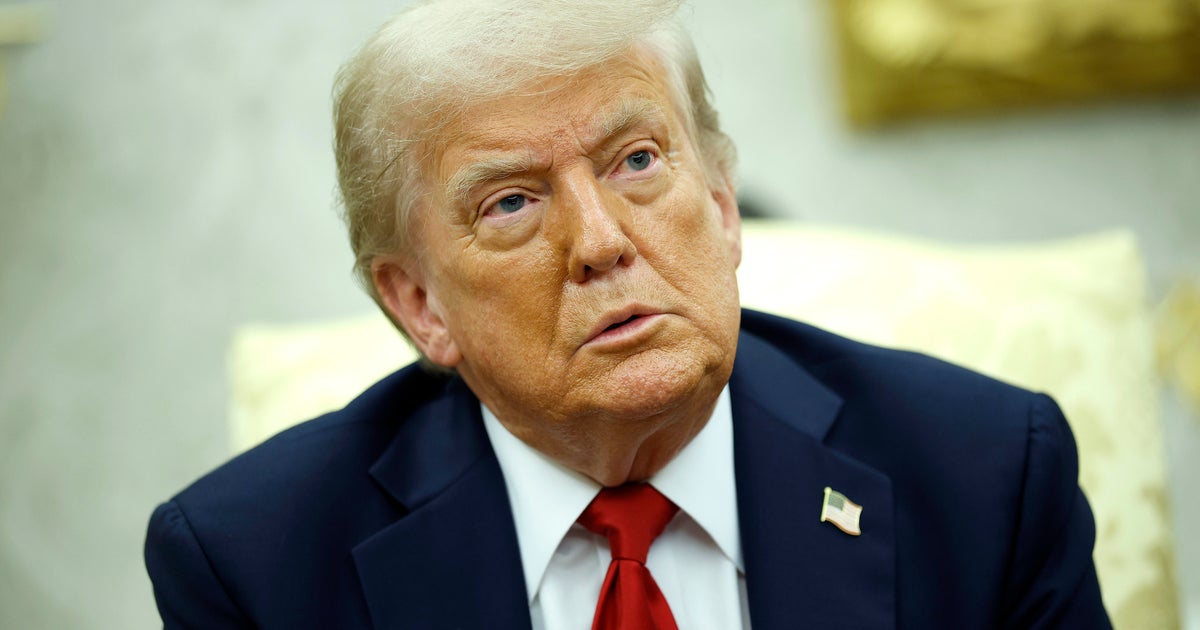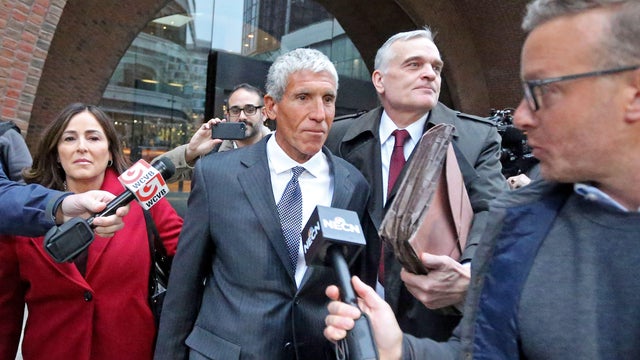

No response returned

Russia has rejected President Trump's "ultimatum" for Moscow to sign a ceasefire deal to end the war in Ukraine within 50 days on Tuesday as "unacceptable," calling for continued negotiations and insisting that the invasion ordered by President Vladimir Putin would continue until its goals are achieved.
In response to President Trump's on countries that do business with Russia if Putin's government does not agree to a deal to end the war in that timeframe, Deputy Foreign Minister Sergey Ryabkov said Tuesday that "any attempts to make demands, especially ultimatums, are unacceptable to us," according to Russia's state-run TASS news agency.
"We need to focus on political and diplomatic work. The President of the Russian Federation has repeatedly said that we are ready to negotiate and the diplomatic path is preferable for us," Ryabkov was quoted as saying. "If we cannot achieve our goals through diplomacy, then the SVO (war in Ukraine) will continue… This is an unshakable position. We would like Washington and NATO as a whole to take it with the utmost seriousness."
Kremlin spokesperson Dmitry Peskov separately called Mr. Trump's announcement "quite serious."
"Some of it is addressed personally to (Russian) President Putin. We definitely need time to analyze what was said in Washington," Peskov said during his daily briefing on Tuesday. "If and when President Putin deems it necessary, he will definitely comment on it. I would not want to get ahead of ourselves, so let's wait for Putin's decision on whether he will comment on it himself."
Russia's former President Dmitry Medvedev, who is close to the Kremlin, called Mr. Trump's remarks "a theatrical ultimatum" in a post on social media, adding that "Russia didn't care."
On Tuesday, Mr. Trump said "at the end of 50 days, if we don't have a deal, too bad." Mr. Trump said at that point, "the tariffs are going to go, and other sanctions" but he added that Ukrainian President Volodymyr Zelensky "shouldn't target" Moscow.
Speaking Monday in the Oval Office alongside visiting NATO Secretary General Mark Rutte, Mr. Trump said: "We are very unhappy, I am, with Russia." He also announced a deal for the U.S. to sell additional weapons to its NATO allies, with the understanding that they will then send the weapons to Ukraine.
"We're not buying it, but we will manufacture it, and they're going to be paying for it," Mr. Trump said.
"This is really big," Rutte said. "And the decision is that you want Ukraine [to have] what it needs to have to maintain, to be able to defend itself against Russia, but you want Europeans to pay for it, which is totally logical."
Mr. Trump again expressed his frustration with Putin, whom he recently for ordering strikes on civilian areas in Ukraine. On Monday, Mr. Trump suggested the Russian autocrat had a habit of saying one thing and then doing another.
"I always hang up, say, 'Well, that was a nice phone call.' And then missiles are launched into Kyiv or some other city and I say, 'That's strange.'" Mr. Trump said. "After that happens three or four times, you say, the talk doesn't mean anything."
When asked in an interview with TheNews partner BBC News if he was done trying to deal with the Russian leader, Mr. Trump said: "I'm disappointed in him, but I'm not done with him. But I'm disappointed in him."
In a social media post on Monday, Zelenskyy said he had spoken with Mr. Trump and thanked his American counterpart, "for the willingness to support Ukraine and to continue working together to stop the killings and establish a lasting and just peace."
"It's important that we have such a good relationship, and that the Alliance countries are working to increase defense spending," Zelenskyy said, adding that he and Mr. Trump had made plans to speak again.
"We agreed to catch up more often by phone and coordinate our steps in the future as well," he said. "Thank you, Mr. President! Thank you, America!"
Russia launched its full-scale invasion of Ukraine on Feb. 24, 2022. The attack, involving tens of thousands of uniformed soldiers and barrages of missiles, came after after backing separatist forces in the region.
While Russia has maintained control over Crimea and installed its own administration there — along with a huge swathe of eastern Ukraine seized over the last three years — its dominion over those regions is not recognized by the U.S., the United Nations, or the majority of the international community.
One of Putin's key demands for a ceasefire in the ongoing war is that Ukraine, and its international backers, should recognize Russian ownership of at least some of that occupied territory.




